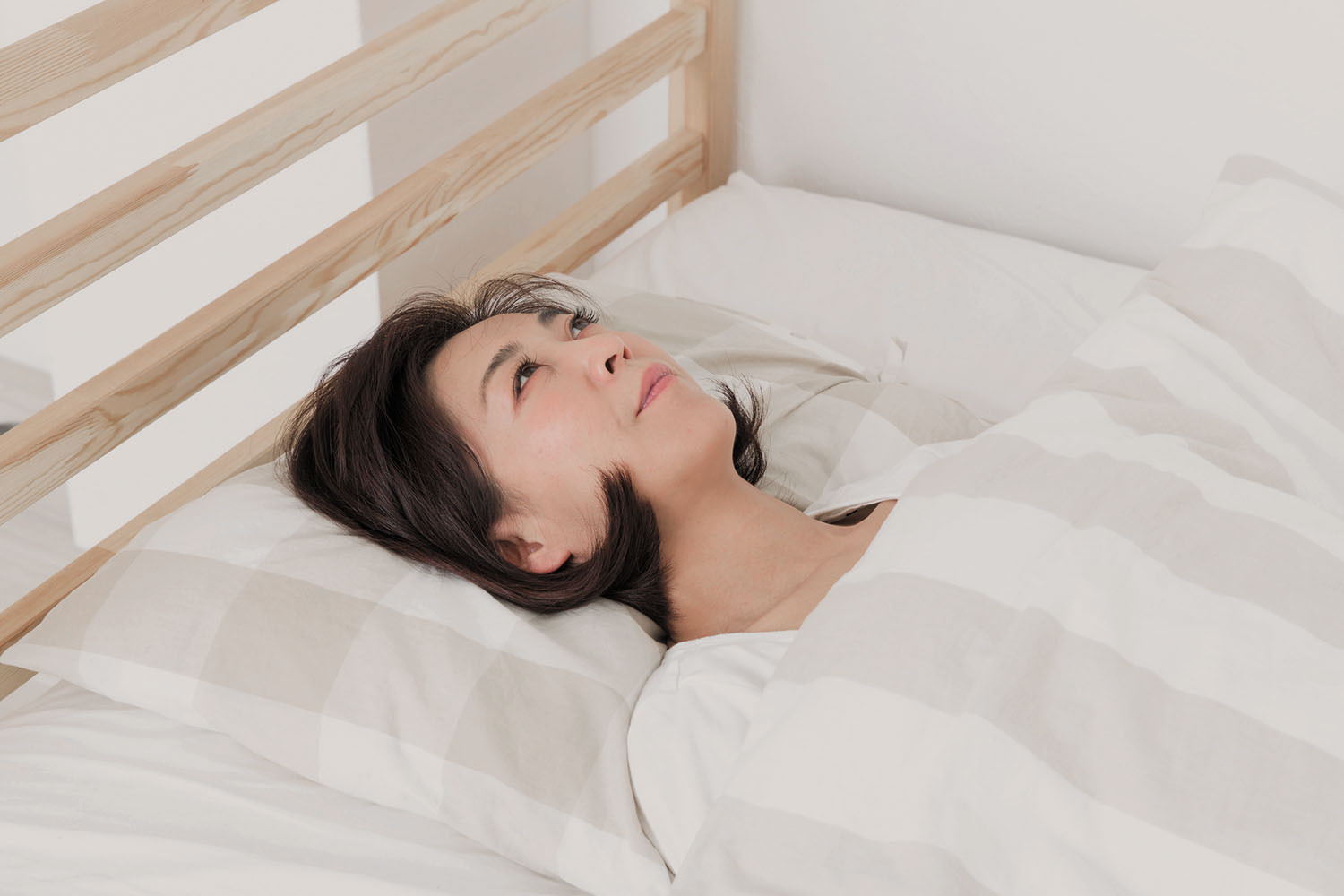
Avocado nutrition: Health benefits and easy recipes

Swimming lessons save lives: What parents should know

Preventing and treating iliotibial (IT) band syndrome: Tips for pain-free movement

Wildfires: How to cope when smoke affects air quality and health

What can magnesium do for you and how much do you need?

Dry socket: Preventing and treating a painful condition that can occur after tooth extraction

What happens during sleep �� and how to improve it

How is metastatic prostate cancer detected and treated in men over 70?

Could biofeedback help your migraines?

What is autism spectrum disorder?
Headache Archive
Articles
FDA approves new migraine medication
Research we're watching
If you suffer from migraine headaches, there's a new option available to relieve your pain. In October 2019, the FDA approved lasmiditan (Reyvow) to treat migraine pain in adults. Taken as a pill, it works for migraines either with or without an aura (a visual disturbance within the hour before migraine pain starts). Lasmiditan is not designed to prevent migraines. Lasmiditan is the first migraine treatment in a class of drugs known as serotonin (5-HT) 1F receptor agonists. In studies, researchers found that it could relieve pain and other migraine symptoms within two hours.
Migraines affect an estimated 28 million women in the United States, according to the American Migraine Foundation, and the World Health Organization ranks them among the top 10 disabling conditions. Pain and other symptoms, which may include nausea, sensitivity to light and temporary vision changes, result in lost work days, reduced productivity, and diminished quality of life for many people.
Troubled by migraines? Cut back on your caffeine drinks
In the journals
Over-the-counter pain medicines that contain caffeine can be effective at stopping some headaches. But drinking a large amount of caffeinated beverages might actually trigger a headache for some people with migraines, according to a study published in the August 2019 issue of The American Journal of Medicine.
Researchers recruited almost 100 people with migraines who suffered from fewer than 15 headaches per month. For six weeks, they recorded the timing and characteristics of each migraine and their intake of caffeinated beverages.
Stopping the vicious cycle of rebound headaches
People who get frequent headaches and need to take medication at least 15 days a month may be at risk for medication overuse headaches, or “rebound headaches.�� Treatment depends on the medication being taken.
How many caffeine servings trigger migraine headaches?
News briefs
Last month we told you about new medications to treat migraine headaches. Now a small Harvard study published Aug. 8, 2019, in The American Journal of Medicine offers a reminder about the importance of limiting migraine triggers. For six weeks, 100 adults with frequent migraines were asked to record daily intake of caffeinated coffee, tea, soda, and energy drinks; alcohol intake; activity levels; stress; and sleep times. They also recorded their headache episodes. Researchers looked at each study participant's risk of having a headache on a given day in relation to his or her consumption of caffeinated beverages. Having three or more servings of caffeinated drinks in a day was associated with higher odds of having a migraine on that day or the following day. However, having one to two servings of caffeinated beverages was not associated with migraines. Does that mean people prone to migraines can safely enjoy up to two caffeinated drinks per day? Not quite. The study is only observational and doesn't prove that any amount of caffeine will or won't cause migraines. But if you are prone to migraines, watch your headache triggers, and perhaps keep a journal of daily activity (including caffeine intake) to help discover your trigger limits.
Image: Mike Watson Images/Getty Images
Recurrent headaches in children: What to know and do
Most children have an occasional headache, but some children get recurrent headaches. These often run in families and may be migraine or tension headaches or might stem from other causes.
Are the new migraine medications working?
Doctors say three recently approved migraine prevention drugs are helping people have fewer headaches.
For people with frequent, debilitating migraine headaches, 2018 brought encouraging news. The FDA approved three new medications �� erenumab (Aimovig), fremanezumab (Ajovy), and galcanezumab (Emgality) �� the first drugs designed specifically to prevent migraines and reduce their frequency, intensity, and duration.
It was a big development, since other medications used to stop migraines were created to control other conditions, such as seizures, depression, high blood pressure, or an irregular heartbeat. But their side effects (such as weight gain, dizziness, or fuzzy thinking) often cause people to skip treatment.
Does Botox reduce the frequency of chronic migraine?
People who experience chronic migraine headaches may benefit from treatment with botulimun neurotoxin (Botox), though other treatments such as medication are usually tried first.
Thunderclap headache: The “worst headache of my life��
A thunderclap headache is a sudden, extremely severe headache associated with several possible causes. It’s considered a medical emergency and should be treated as soon as possible.
Shorter sleep may cause dehydration
��Image: © miya227/Getty Images
In the journals
Adults who sleep only six hours per night may have a higher chance of being dehydrated, compared with those who sleep longer, according to recent research published online Nov. 5, 2018, by the journal Sleep. The findings suggest that some of the symptoms of inadequate sleep, such as fatigue, fuzzy thinking, and headache in the morning, may be due to dehydration.
Researchers looked at the risk of dehydration in approximately 20,000 U.S. and Chinese adults. In both populations, people who reported sleeping six or fewer hours had up to a 59% higher risk of dehydration compared with those who slept seven to eight hours on a regular basis. The researchers speculated that the finding may reflect the nightly rhythm of a hormone called vasopressin. During sleep, the pituitary gland in the brain uses vasopressin to signal the kidneys to retain fluid in the body rather than excreting it through urine.

Avocado nutrition: Health benefits and easy recipes

Swimming lessons save lives: What parents should know

Preventing and treating iliotibial (IT) band syndrome: Tips for pain-free movement

Wildfires: How to cope when smoke affects air quality and health

What can magnesium do for you and how much do you need?

Dry socket: Preventing and treating a painful condition that can occur after tooth extraction

What happens during sleep �� and how to improve it

How is metastatic prostate cancer detected and treated in men over 70?

Could biofeedback help your migraines?

What is autism spectrum disorder?
Free Healthbeat Signup
Get the latest in health news delivered to your inbox!
Sign Up











